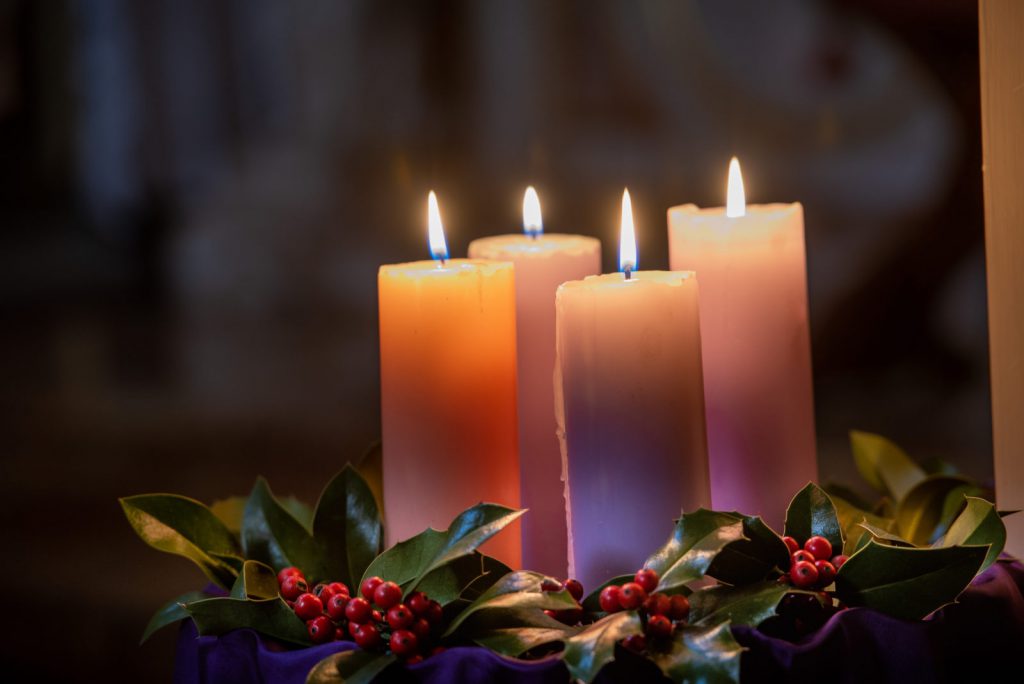
Published December 6, 2018
November’s meeting of the U.S. Conference of Catholic Bishops is behind us, even if the frustration of it is not. Pope Francis’s meeting with the heads of the world’s episcopal conferences won’t take place for almost three months. After the New Year, the American bishops will gather at Mundelein Seminary for a week-long retreat on the theme of the mission of the Apostles and their successors. All of which is to say: The scandal of recent months is far from resolved; it lingers and spreads and festers.
Just last week, police raided the archives of the Archdiocese of Galveston-Houston as part of an investigation into abuse allegations against Fr. Manuel La Rosa-Lopez. The Archdiocese of Santa Fe just announced that it will file for bankruptcy on account of the financial losses exacted by the abuse crisis.
Scandal. Crisis. People are fed up. Some are leaving the Church. There is a sense that things are unraveling, or at least very badly frayed. I have been reminded recently, and more often than I would like, of a bit of ecclesiastical gallows humor I learned from an old friend: “The Lord has a lot to answer for in starting this Church of His.”
The season of Advent arrives, as it is wont to do, just as it is needed most.
Advent is a season of penance, but also of hope. It is easy to look beyond the season, beyond even Christmas, and see the journey to Bethlehem as just one small part of the grand drama of the Incarnation and Redemption. Of course it is, but there is something about Advent that begs for quiet and stillness and a careful reflection on the smallness of things in all their detail.
For Christians who know how the story ends, we can easily take for granted the desolation and brokenness into which Christ willingly entered. The little Christ child was born into this world (or, if anything, into an even worse world than ours, for it was as yet unredeemed). He came to a world that is, as it was then, hopeless without him. And that hopelessness is worth pondering if only to fully appreciate the scandalous gratuity of the feast for which we are preparing.
The King of Kings is coming to a sin-addled world, a world that, by any human measure, is utterly unprepared to welcome him: He knows there’s no room at the inn. He knows he’ll have a manger for his bed, and lowly shepherds to greet him. He knows that he will die for us, not because we are saints, but precisely because we are not. And yet he comes.
As we scramble to tidy up our lives in preparation for the arrival of our Divine Guest, we should remember that he knows what we suffer, and he knows every injustice we’ve endured. He knows our anger and frustration, and he knows far better than we ever could the terrible price of sin – our sin. And yet he comes.

As preposterous as it must sound to ears that have not heard the news before, he comes for us all as a newborn child. He comes for us in a way so scandalously vulnerable as to beggar belief. In one sense, the nativity story that is so patently absurd – God as an actual baby? – that it must be true. He comes in the most surprising way.
He’s coming for the sake of the victims of priests and bishops who abused their authority, betrayed their callings, and preyed on their flocks. He comes for those who see nothing but hopelessness around them and for those who hold themselves unworthy of love. And he’s even coming for the sake of the Theodore McCarricks of the world – for the sake of those we might be tempted to see as hopeless.
There’s no use getting riled up about the abuse crisis or reform – no use in doing anything about it at all – if all of this isn’t actually true. If it is true, then contemplating the hopelessness of human agency and the scandalous gratuity of the Incarnation in the context of our current predicament is nothing more than an exercise in Christian realism. And if anything is to be done in our frayed Church, anything helpful at least, it must be built on such realism. Nothing we (or the bishops) do will succeed unless He brings it to fruition.
So in this season of scandal, in this season of expectation, it’s worth asking ourselves just what it is we think we’re expecting. Do we think we know what God is about or do we have the humility to expect the unexpected? Are we prepared to see the Lord do something surprising and new? Are we prepared to see reform and rejuvenation come, maybe, from the places or people – enter the name of your least favorite prelate, here – we deem least likely?
Christian realism isn’t naivete; it’s the farthest thing from it. And (in another of his surprisingly outlandish schemes) the Lord has chosen to depend upon our free cooperation for the building up of the Kingdom. But if this season of expectation reminds us of anything, it should remind us that, left to our own devices, our own wisdom, we are without hope.
That “God is a God of surprises” is a cliché that can be used to excuse all manner of nonsense. It also happens to be true. Advent – especially this Advent, when reform is so much on our minds – is a good time to remember that everything we do depends on a God who thought shepherds round an infant lying swaddled in a Bethlehem manger would be just the thing.
Those of us who desire reform and renewal should take the time to prepare. . .and to be prepared for the unexpected:
See, I am doing something new!
Now it springs forth, do you not perceive it?
In the wilderness I make a way,
In the wasteland, rivers.
Stephen P. White is a fellow in Catholic Studies at the Ethics and Public Policy Center in Washington.
*Image: The Nativity by Domenico Ghirlandaio, 1492 [Vatican Pinacoteca]











